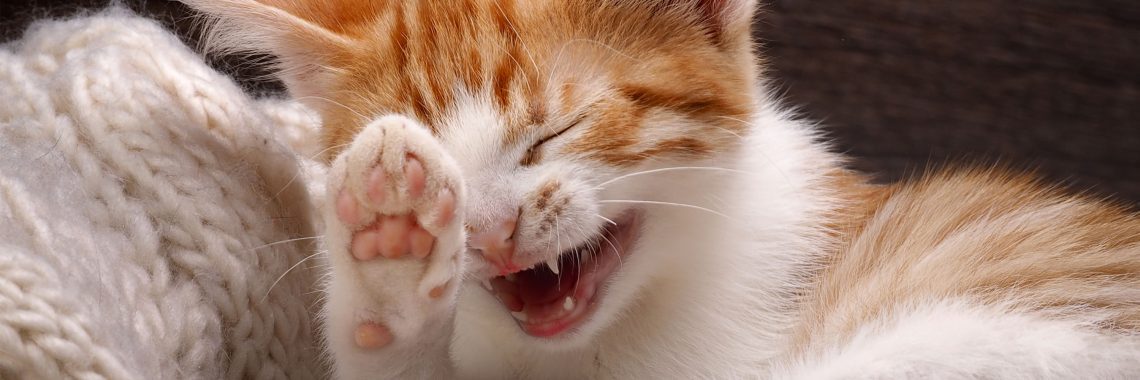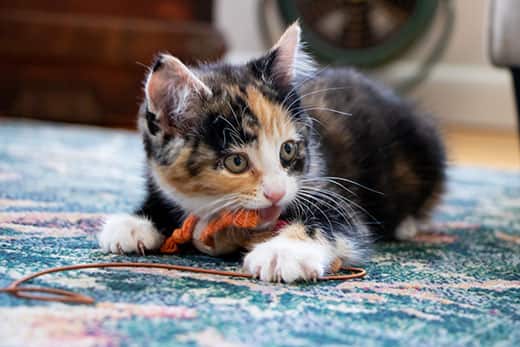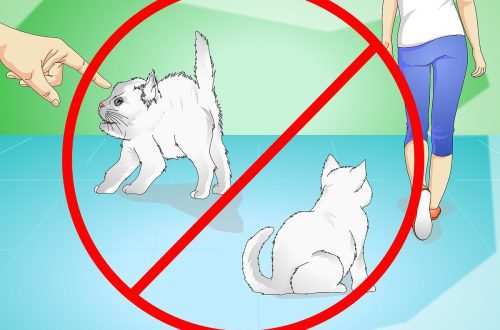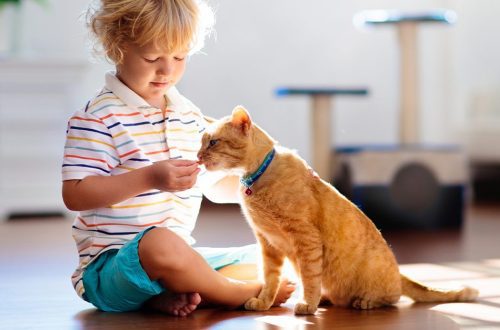
Teething in Kittens: When It Happens, Symptoms, and How to Help
If children wait years until all milk teeth fall out, and permanent ones grow in their place, then in kittens this process goes faster. In fact, by the time a kitten is 6 months old, the second set of teeth is already fully grown.
Contents
When do kittens start teething?
Milk teeth, also called replaceable teeth, erupt in kittens at the age of 3-4 weeks. According to the Pet Health Network, the incisors and milk canines come first, with the rest of the teeth coming in later.
All milk teeth fall out at the age of 3-4 months, making room for permanent ones. Usually, the change of milk teeth in kittens to molars ends by the time the pet is 6 months old. Most adult cats have 26 milk teeth and 30 permanent teeth.
When teeth are cut in kittens: symptoms
You may not even notice when a pet’s teeth change until there are fallen ones on the floor or in the basket where he sleeps. This is fine. Most kittens will swallow their tiny teeth, but don’t worry, it won’t hurt them.
When a kitten changes milk teeth, you can notice the following changes in his behavior:
- Loss of appetite.
- Excessive desire to chew.
- More infrequent washes.
- Soreness and redness of the gums.
- Slight bleeding gums.
- Irritability.
At this stage, the kitten may also begin to scratch its mouth with its paw. If the owner notices this behavior, it may be due to a condition called deciduous tooth retention, experts at Tufts Catnip explain. At the same time, some milk teeth do not want to fall out. This problem is rare, but it is worth paying attention to, as the kitten may need a tooth extraction.
Tufts stresses the importance of looking for signs of gingivitis or periodontal disease, such as severely swollen or bleeding gums and bad breath when a kitten is teething. If your pet has any of these symptoms, you should immediately consult a veterinarian to ensure that the baby receives the necessary treatment.
The kitten is teething: how to help him
Teething through sensitive gums is always a physical discomfort, but according to Greencross Vets, it is usually minimal.
The kitten will try to reduce the soreness and irritation associated with teething. He may even try to use the owner as a chew toy, which is unlikely to please the latter. In this case, as in other aggressive cat games, you need to switch the attention of the kitten to something else.
One safe item to use as a chew toy is a cold, damp washcloth. You can chew it as much as you like, and this will help reduce discomfort. Fabric toys and braided ropes are also suitable.
Alternatively, you can purchase kitty chew toys from the pet store, such as those made from nylon that are easy to chew, or those that can be chilled in the freezer. For the safety of the kitten, it is better for the owner to be nearby while he plays with these toys. In all cases, you should follow the manufacturer’s instructions, as well as check the integrity of the toys, immediately discarding the damaged ones.
The kitten may try to gnaw on the legs of furniture or wires. Such actions can not only lead to damage to things, but also harm the pet. “To prevent accidental injury from destructive chewing, cover electrical cables and wires with protective plastic covers,” Your Cat experts advise. They also suggest applying double-sided tape to areas that need to be protected from the kitten’s sharp teeth.
The Importance of Proper Oral Hygiene in Kittens
Dental and gum diseases are common in cats, but by making efforts to maintain the health of the kitten’s oral cavity, you can prevent their occurrence in the future.
Regular dental care with checkups and brushing can reduce medical costs and prevent diseases such as gingivitis, periodontitis, and tooth resorption. It is worth starting the procedure after the end of teething in order to avoid additional discomfort for the kitten. It is necessary to give the kitten food appropriate for its age – this will also alleviate the painful condition associated with teething.
The kitten may not tolerate this process well, so be sure to give him lots of love, support and patience until all the new teeth are in place..





